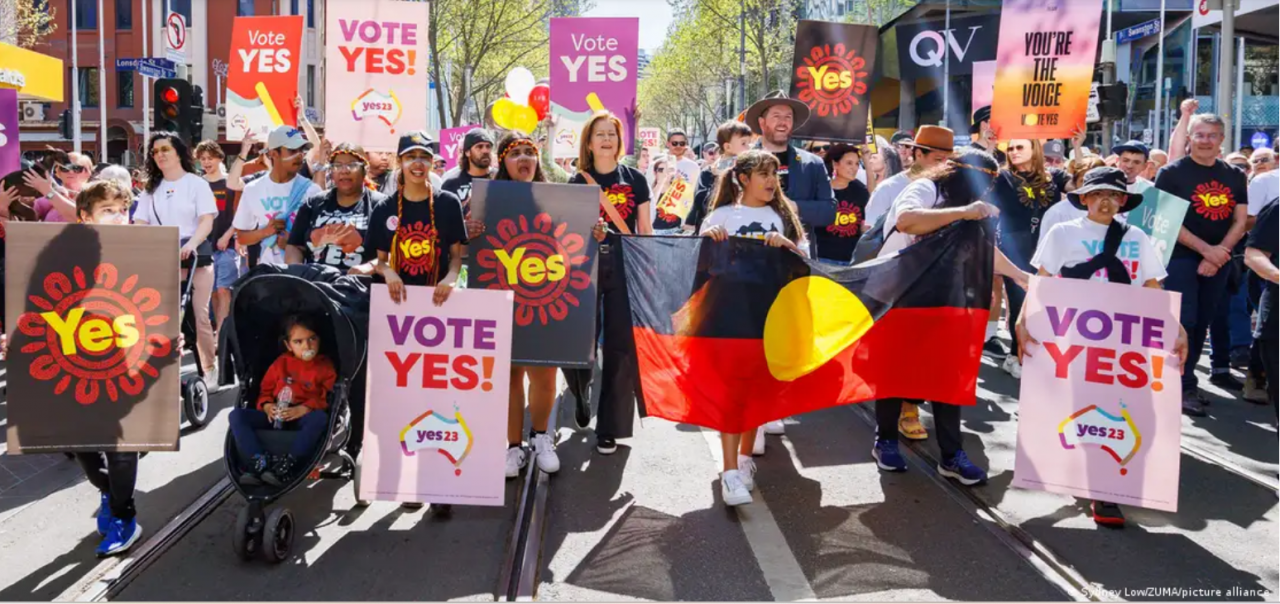Australia Rejects Voice Referendum – A Major Setback for Indigenous Rights in Australia.

Photo: dw.com - Sydney Low/ZUMA/picture alliance
Australia has rejected the 'Voice Referendum,' a measure that aimed to incorporate an advisory body on indigenous affairs into the country's constitution. With 60% of the vote against the proposal, it dealt a significant blow to Prime Minister Anthony Albanese of the Labor party. The indigenous community, constituting around 3% of Australia’s population, continues to grapple with stark disparities, enduring higher rates of health and mental health challenges. Their life expectancy lags behind by 8 years, and the statistics reveal that young indigenous men are more likely to find themselves behind bars than attend university.
Strong support for the Voice Referendum was evident in specific localities, including the affluent neighbourhoods of inner Sydney and Melbourne, as well as the isolated corners of the Northern Territory where indigenous communities reside.
While support for the Voice Referendum polled at a high of 65% last August, in the last few months, the “no” campaign had gathered steam. Prime Minister Albenese said of the Voice failure that Australia “must seek a new way forward with the same optimism.”
Critics found fault with the proposal for various reasons, such as its insufficient information regarding the advisory body's setup and concerns about potential divisions based on racial and ancestral identities. It is notable that every Australian referendum has historically required support from both major political parties to be successful.
For more information, click here.



